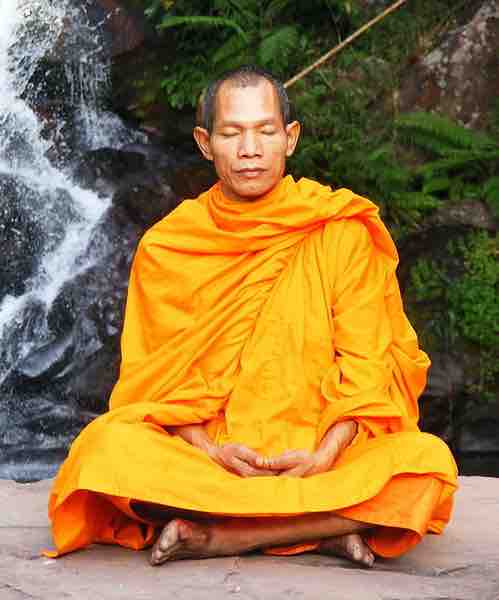Meditation is the practice of training the mind to think in a particular way or to induce some mode of consciousness. This is done to obtain a particular benefit, such as relaxation, or as an end in itself. Meditation encompasses a variety of techniques that help a person achieve relaxation, build internal energy, or develop compassion and patience. Techniques of meditation vary from person to person and from culture to culture.
Daily meditation can be helpful for a variety of reasons. Western studies are beginning to show what other cultures have known for centuries—namely, that meditation helps to reduce stress, assists individuals in gaining perspective, enhances focus, and contributes to physical and psychological health and well-being. Meditation can be done any time of the day, and it can take as few as five minutes or as long as several hours.
Techniques and Varieties of Meditation
Different meditation techniques include meditation of breath, devotional meditation, and relaxation meditation. Meditation of breath can be described as the most traditional form of meditation, in which a person sits comfortably and focuses on his or her breath entering and leaving the body. The concentration involved in this type of meditation helps clear a person's mind and allows him or her to enter a state of deep relaxation and clear mind.
Devotional meditation is very similar to meditation of breath, except instead of focusing on the breath entering and leaving a person's body, the focus is on a particular object or concept. Many ancient religions of the world have a tradition of using some type of prayer beads as tools in devotional meditation. The object chosen assists the individual in focusing and calming his or her mind, often through repeated movements. Meditation may also involve repeating a mantra and closing one's eyes.
Relaxation meditation, also known as progressive muscle relaxation, allows a person to fully relax his or her entire body. This kind of relaxation involves systematically and rhythmically tightening and relaxing various muscle groups. By tightening and relaxing the various muscle groups in a person's body, often working from one end of the body to another, relaxation (both physical and mental) is achieved.
Health Benefits of Meditation
There are a variety of health benefits associated with meditation, and research continues to show more evidence of these benefits in studies involving meditation. Though this is not an exhaustive list, some of the health benefits include the following:
- increased blood flow to all parts of the body;
- lower blood pressure;
- reduced anxiety;
- decreased muscle tension;
- lower rates of depression due to increased serotonin levels;
- enhanced immune system.

Meditation
Meditation allows a person to achieve a mental and physical state of relaxation.
Research on Meditation
Research on the effects of meditation is a growing subfield of neurological research. Modern scientific techniques and brain-scan instruments have been used to see what happens in the bodies of people when they meditate, and how their bodies and brains change after meditating regularly.
Studies have shown that rumination and worry contribute to mental illnesses such as depression and anxiety, and that meditation-based interventions are effective in the reduction of worry, even in such extreme cases as panic disorder and post-traumatic stress disorder (PTSD). These interventions also appear to bring about favorable structural changes in the brain. A recent study found a significant cortical thickness increase in individuals who underwent a brief eight-week training program, and that this increase was coupled with a significant reduction of several psychological indices related to worry, anxiety, and depression. Another study describes how meditation-based interventions target neurocognitive mechanisms of addiction.